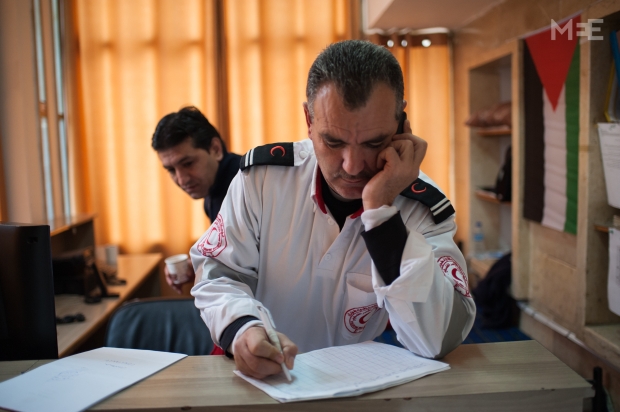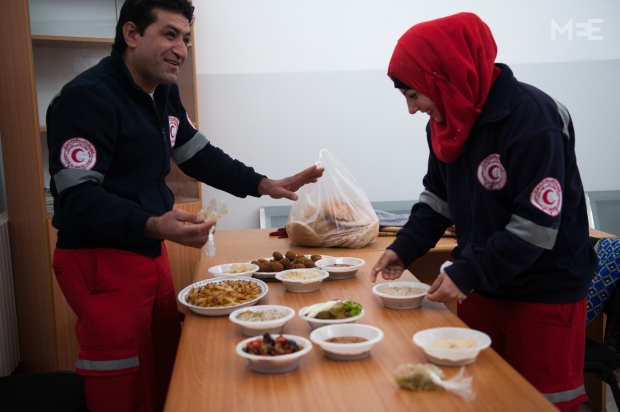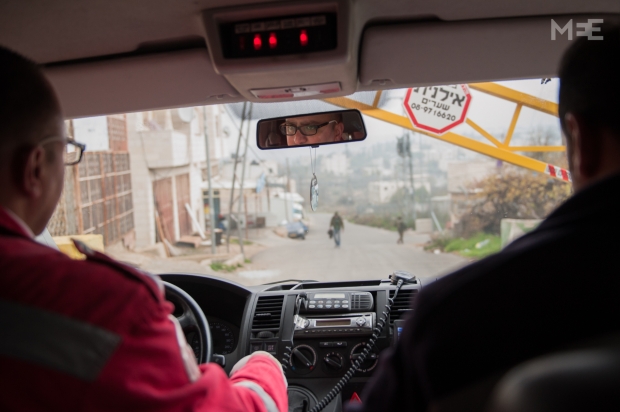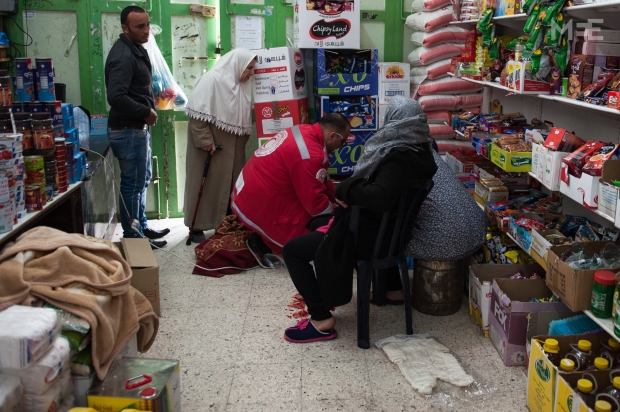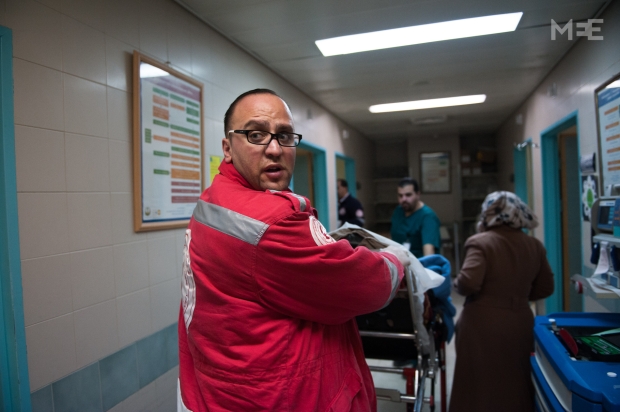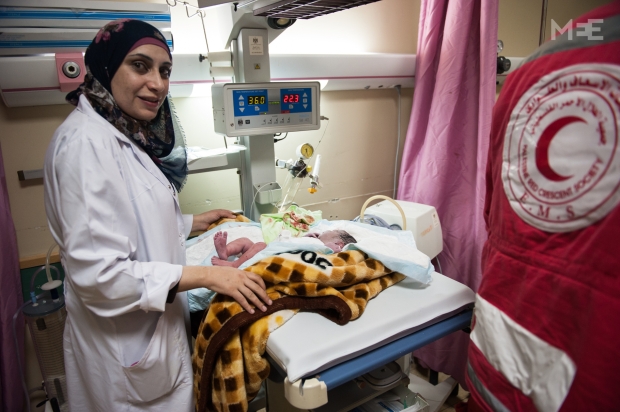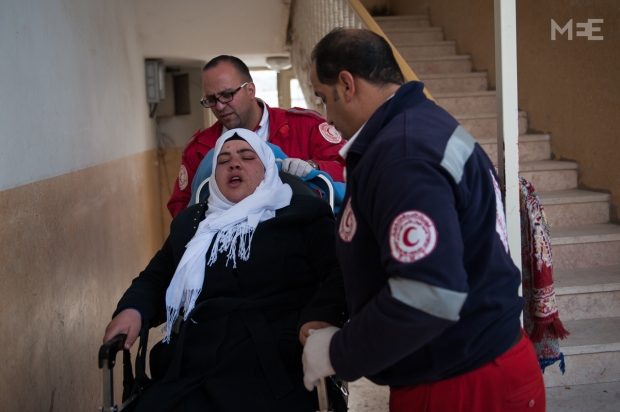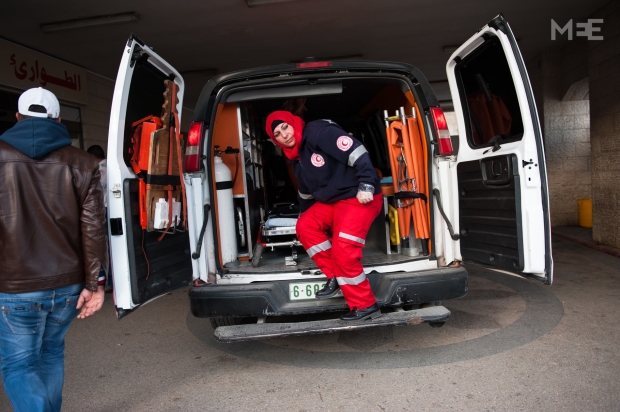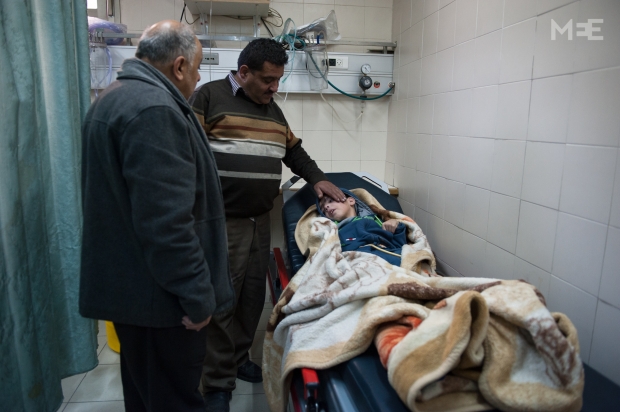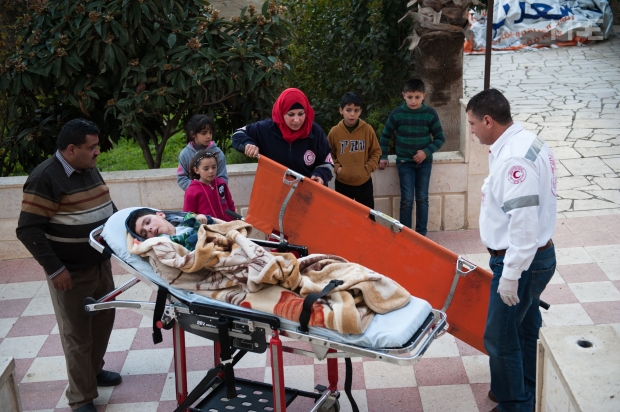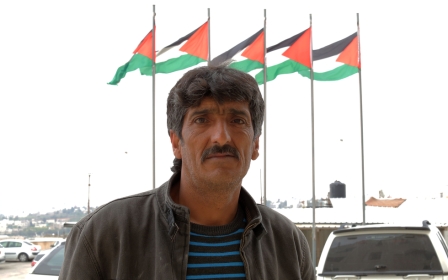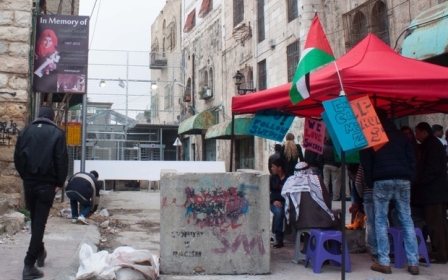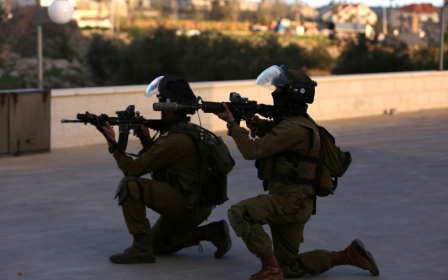IN PICTURES: 48 hours with the Palestinian Red Crescent Society
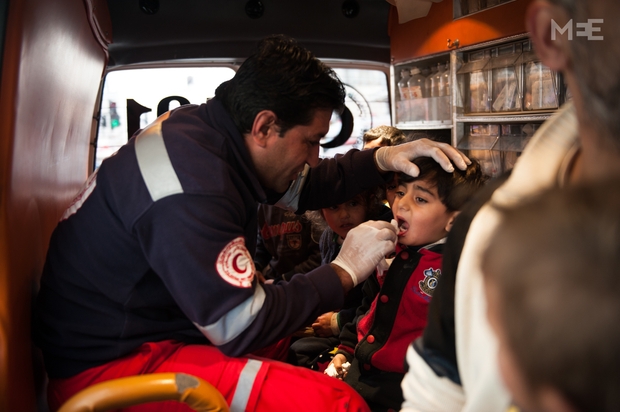
Hebron, Occupied Territories - The Palestine Red Crescent Society (PRCS) is a national humanitarian organisation that was officially founded in 1968. Since its establishment, it has been catering to the health and welfare of Palestinian people all over the Occupied Territories, even in the most trying of circumstances.
The Hebron branch not only provides emergency services to whoever is in need, but it is also a point of reference for programmes that promote health and social well-being. Despite a challenging Israeli military occupation that restricts the movement of Hebron's inhabitants, PRCS's dedicated volunteers are not hindered from doing their jobs with heartfelt conviction.
Nasser has been working as an operator and disaster manager at PRCS for 25 years. During the summer months, part of his responsibility is teaching young volunteers emergency protocol and behaviour.
Though he does not currently go into the field, he says the hardest part of his job is seeing young Palestinians injured due to the tense security situation. "Since October, on Fridays in particular, there have been a lot of injury cases due to the clashes between the Israeli Army and some young Palestinians," says Nasser.
PRCS is a close-knit team that works on a 24-hour shift, seven days a week. When they are at their base, the team eats at least two meals a day together, usually consisting of breakfast and dinner.
As Ayman and Lina prepare hummus, falafel and other Palestinian specialities for everybody, Jawat, another team member proudly explains that "at the PRCS, we are like a family. We have our breakfast together every morning."
Jawdat started as a volunteer at PRCS in 2000. He is now a member of the Emergency Medical Services (EMS) team.
When they receive a call for an emergency delivery in the H2 area of Hebron - which is an area managed by Israel in accordance with the Hebron protocol of 1997 - the ambulance has to wait for Israeli soldiers to let them through the checkpoint.
Minutes after dealing with one incident the PRCS team is called in to help a pregnant woman giving birth to a child in a shop located in Hebron's H2 area. By the time the emergency team had arrived, the woman had already delivered her baby.
Jawdat still takes the mother and her newborn to the paediatrics services at Hebron hospital, to make sure they are perfectly healthy.
They are both given the all clear.
One of the PRCS team members, Alaa, recounts some of the more severe cases he has seen but says he was particularly affected by "a car accident where a wheel was stuck in a woman's abdomen, killing her and the baby she was pregnant with."
Later in the day the team is called to an incident where a schoolgirl's foot had been run over by a car. To make sure her foot was not broken, her father immediately called the PRCS to take her to the closest hospital.
Traffic accidents are very common in the Occupied Territories, and are the number one cause of emergency calls. Ayman explains that "most of the cases we are called for are car accidents, because here they drive like crazy."
Lina has three children and is the only woman working at the PRCS. Regardless of this, she says she has not noticed any differences in the way team members treat her. "I don't feel I'm treated any differently just because I'm the only woman working [in the team] here," says Lina.
In one of the more emotional cases of the day the team take care of eleven-year-old Feraz who has been paralysed since a diving incident where he fell on his head. His loving father goes with him to the hospital each time he needs care.
Lina and Alaa take Feraz back home after he receives his treatment at Hebron hospital.
The next day Hebron's PRCS are called in to care for the victims of yet another car accident. This one involves four children and their father. The children were in the car when the accident occurred. Though they are in shock, they did not sustain serious injuries. Ayman registers them with hospital staff.
When not out in the field the whole PRCS team is in the operations room ready to be dispatched and intervene wherever necessary. Fridays can be busy days because demonstrations are normally held that day and bustling crowds fill the streets due to Friday prayers at the mosque but regardless of what day of the week it is, the entire team stand by ready to help whenever called upon.
This article is available in French on Middle East Eye French edition.
New MEE newsletter: Jerusalem Dispatch
Sign up to get the latest insights and analysis on Israel-Palestine, alongside Turkey Unpacked and other MEE newsletters
Middle East Eye delivers independent and unrivalled coverage and analysis of the Middle East, North Africa and beyond. To learn more about republishing this content and the associated fees, please fill out this form. More about MEE can be found here.


